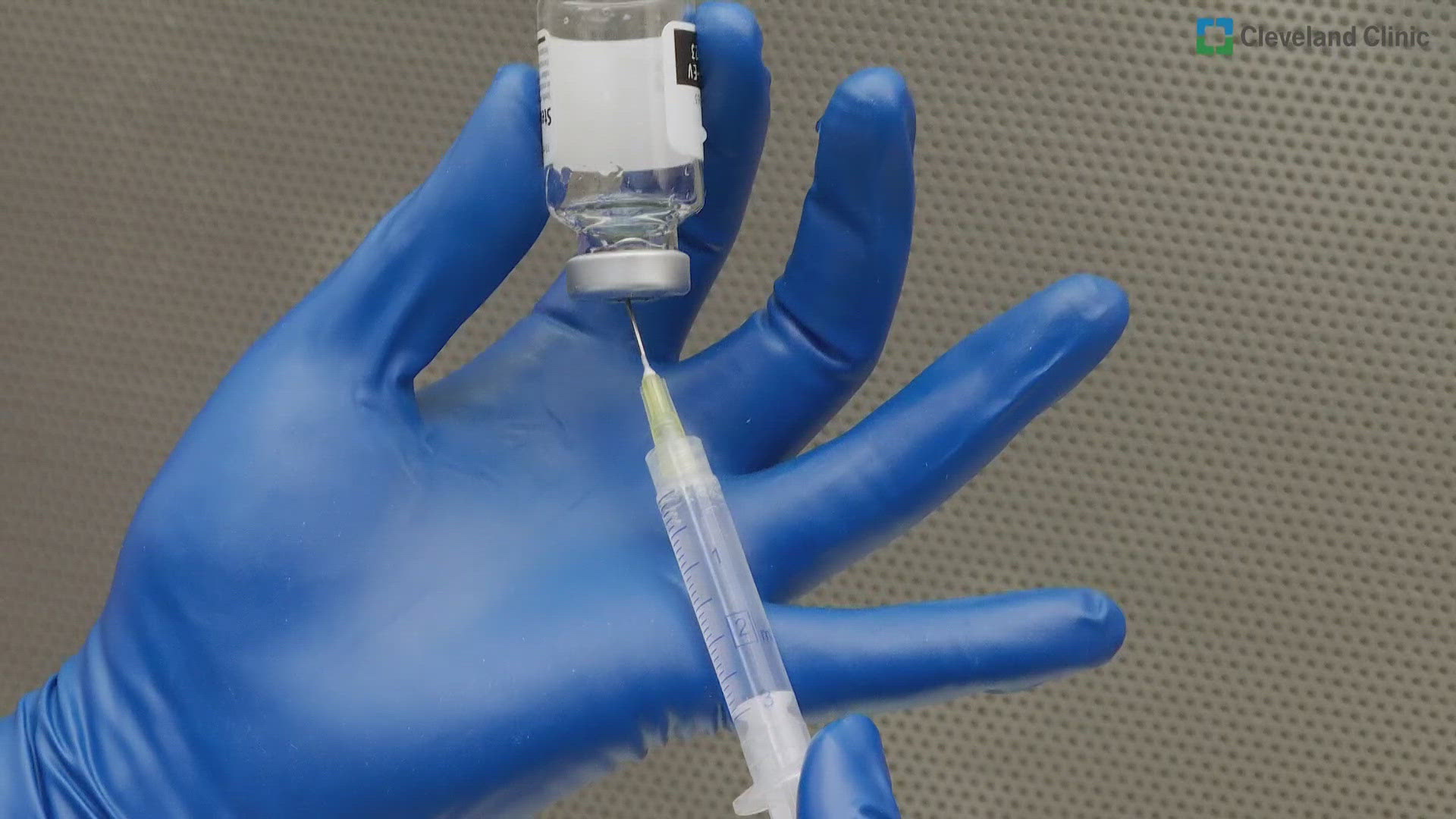CLEVELAND — Triple Negative Breast Cancer (TNBC) is the most aggressive and deadliest form of breast cancer.
Now, the next phase of research into a vaccine that was created in a lab at Cleveland Clinic is getting ready to move on to its next phase.
"We are getting an immune response in the majority of patients," Dr. G. Thomas Budd, an oncologist at the Cleveland Clinic Cancer Institute and the trial’s lead investigator, noted. "It's not 100%; nothing is 100%."
They've also narrowed down a dose but are still trying to modify appropriate levels.
The concept behind the vaccine is that it targets 'the retired-protein hypothesis,' a theory that certain proteins are reactivated in the early stages of carcinogenesis, and that targeting these proteins could help prevent adult-onset cancers. The concept was advanced by the late Vincent Tuohy, PhD, who was an immunologist at Cleveland Clinic’s Lerner Research Institute.
Dr. Tuohy’s research found that targeting α-lactalbumin in laboratory mice genetically modified to study human diseases showed it was effective in preventing breast tumors and inhibited growth of existing breast tumors. These outcomes inspired the vaccine’s invention.
In fall of 2021, Jennifer Davis became the first participant of the first phase of the vaccine trial.
"Thanks to very brave women who went on this trial as well as other trials that allow treatments to be developed for the benefit of others in future generations," Dr. Budd said.
Anixa Biosciences Inc., a biotechnology company focused on the treatment and prevention of cancer, now owns the vaccine. This week, they announced the plan for a phase 2 study to evaluate the efficacy of the vaccine administered in the neoadjuvant (before surgery) setting, in combination with chemotherapy and Keytruda (pembrolizumab).
The goal of neoadjuvant therapy is to reduce tumor burden and prevent tumor recurrence, with the intent to improve survival. This clinical trial approach allows Anixa to enroll a broader range of patients, encompassing multiple types of breast cancer.
The key objectives of the trial include evaluating the immunological response to the vaccine and comparing clinical efficacy of standard of care therapy alone with the vaccine plus standard of care therapy. A key component of this trial will be the evaluation of breast cancer tissue and the validation of the immunological mechanism of action of the vaccine.
The trial is expected to start in 2025, and should last two to three years.
Initial phase 1 data was presented at the San Antonio Breast Cancer Symposium last December. The data showed no safety concerns, with protocol-defined immune responses observed in a majority of patients.
Additional data from the phase 1 trial will be presented at the Society for Immunotherapy of Cancer's annual meeting in early November. The phase 1 trial was conducted in collaboration with Cleveland Clinic and is funded by a grant from the U.S. Department of Defense. Anixa is the exclusive worldwide licensee of the novel breast cancer vaccine technology developed at Cleveland Clinic.

